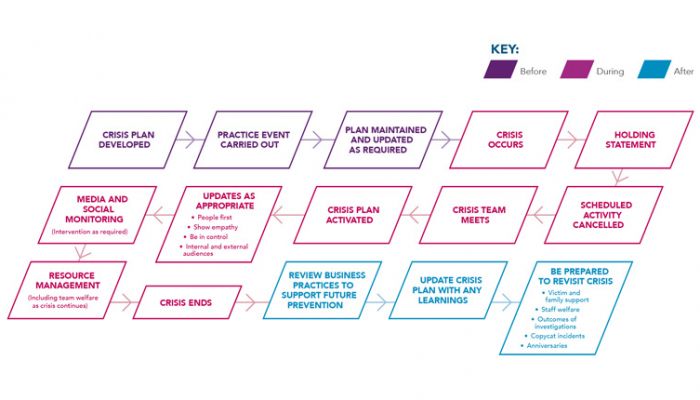How to manage crisis comms for terrorist related events
New guidance has been published by the CIPR and CPNI for best practice communication management before, during and after terrorist incidents.
The CIPR has partnered with the Government’s Centre for the Protection of National Infrastructure (CPNI) on the 38-page guide, which features a communications toolkit designed to help PR professionals mitigate the harmful effects of terrorist incidents on brands, businesses and communities.
Download Crisis Management for Terrorist Related Events here
The guidance explains that communications can help deter terrorists and encourages professionals to be wary of the diverse threats facing organisations, from left- and right-wing terrorism to cybercrime and hacktivism.
The comprehensive toolkit is a valuable resource for anyone working in communications (in any industry) and includes guidance on working with the police, the steps to takes before, during and after an incident, and how to deal with different types of terror-related events.
It is informed by CPNI research based on interviews with 30 communications heads and security professionals from 24 organisations that have experienced a terrorist-related incident. The research found that the success of communication is often determined by the strength of security culture within the organisation. As a result, the guidance encourages PR professionals to align closely with the security function as part of crisis preparations.
Emma Leech, president of the CIPR, said: ‘The fear and horror we feel when people and places we work for or represent are targeted by terrorists has to be separated from the way we manage communication in a time of unique crisis. It demands a clear and calm response that demonstrates empathy and understanding for those affected by these tragic incidents.
‘It is imperative that we consider the operational and emotional needs of the organisation and its stakeholders, and allow sufficient time for planning and recovery. I’d like to thank the CPNI for working closely with the CIPR on the guide and hope that the lessons we’ve highlighted provide support and assurance to PR professionals across the UK.’
Sally Alsop, MD of Agfora, which worked on the research, said: ‘Agfora interviewed 30 comms professionals in high risk businesses; 13 had been directly involved in a major crisis. Although generally well prepared, they readily admit they could always do more. The assumption is that a terror related crisis should be treated like any other, but the research shows there are clear differences and demand for specific guidance. Participants shared their experiences with us, the lessons they learned and tips for fellow colleagues who might one day face such an incident.’
The guidance was produced for the CIPR by Sarah Pinch, Dan Gerrella and Claire Spencer.



Leave a Comment